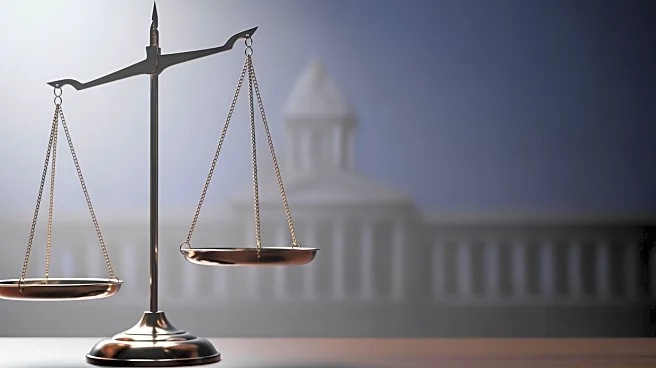What's Happening?
The Department of Justice (DOJ) under President Trump has admitted to providing false information to the U.S. Court of Appeals for the 9th Circuit regarding the deployment of federal agents in Portland.
The DOJ had previously claimed that 115 Federal Protective Service (FPS) officers were sent to Portland to justify the deployment of the National Guard. However, it was revealed that only 86 officers were actually deployed, with the number of active inspectors being even lower. This admission came after plaintiffs in the case exposed the inaccuracies, leading the full 9th Circuit to reconsider the case based on accurate data.
Why It's Important?
This development highlights significant issues of trust and accountability within the DOJ, particularly under the Trump administration. The false information provided by the DOJ was central to a court ruling that supported the federalization of the National Guard, a decision that has broader implications for federal authority and civil liberties. The case underscores the importance of judicial oversight and the potential consequences of unchecked executive power. The admission of error by the DOJ may influence future court decisions and public perception of the administration's integrity.
What's Next?
The full 9th Circuit will rehear the case with accurate information, which could lead to a different outcome regarding the legality of the National Guard's deployment in Portland. This case may also prompt increased scrutiny of the DOJ's actions and statements in other legal matters. The outcome could affect how courts handle similar cases in the future, potentially leading to stricter standards for government accountability and transparency.
Beyond the Headlines
The incident raises ethical concerns about the DOJ's role in supporting executive actions that may infringe on civil rights. It also reflects broader tensions between federal and local authorities, particularly in the context of protests and civil unrest. The case may contribute to ongoing debates about the balance of power between the executive branch and the judiciary.










